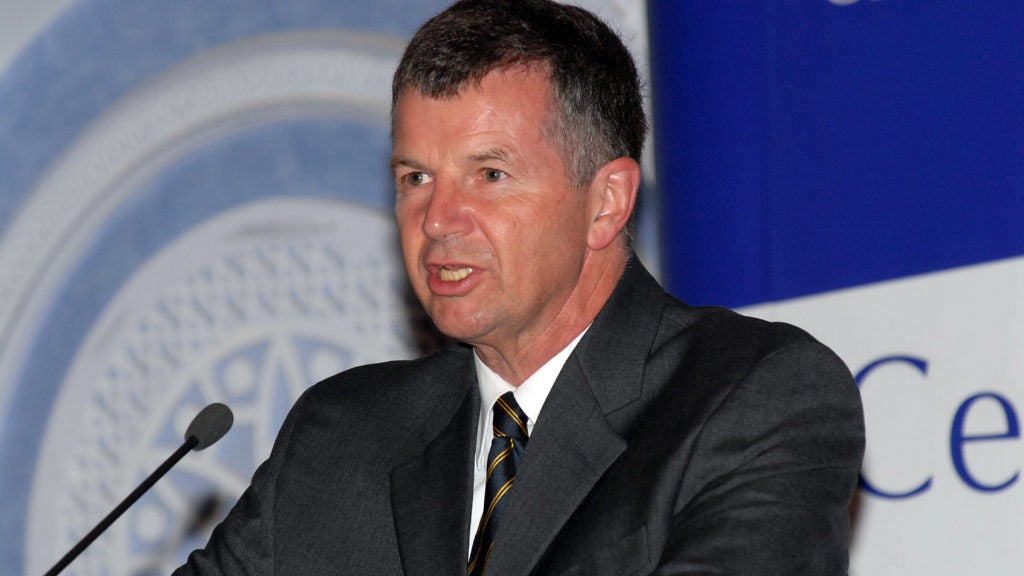Dean James Reardon-Anderson Offers a ‘Brief History of 21st Century

Dr. James Reardon-Anderson, the Dean of the Georgetown University School of Foreign Service in Qatar, delivered a lecture entitled “A Brief History of the 21st Century” at the Diplomatic Club on Sunday 5 November 2006.
Before a crowd of more than 200 students, faculty, and distinguished guests, Dean Reardon-Anderson offered an interesting reflection on how the events of the past ten years have affected international relations, and presented three competing views to try and make sense of current events in the world today. The lecture was sponsored by the Center for International and Regional Studies at the Georgetown University School of Foreign Service in Qatar.
“Most of us grew up in the half-century from the end of WWII to the early 1990s where we knew what the world was about. We knew how things worked,” Reardon-Anderson said, describing the Cold War where all countries were aligned with the United States or the Soviet Union. At that time, the study of international affairs focused only on the relationship between the Americans and the Soviets. With the collapse of the Soviet Union in the early 1990s, “that structure fell apart.”
Using texts from the class he teaches at Georgetown University in Education City, Reardon-Anderson offered three competing views to understand international affairs. He discussed the theories of Francis Fukuyama, as well as those of Samuel Huntington and Thomas Friedman. From Fukuyama’s belief that all people are motivated by a desire for material goods and personal recognition and Huntington’s belief that all conflict in the world is a direct result of differences in the values that we are taught as children, to Friedman’s belief that technology, outsourcing, and the growth of labor forces are the necessary forces that will reshape our world, Reardon-Anderson asserted that only time would tell which theory was most accurate.
Students and guests alike praised the lecture as very informative. “His ‘Brief History of the 21st Century’ was great not because of it’s focus on this century’s brief 6 years, but the global implications for Education City students and their families in the next 94,” said Gregg Deehan, a staff member at Education City.
“We pass on to students the collected wisdom of generations [because] the big questions that our students will face are simply unknown to us,” Reardon-Anderson said of the rapid changes brought on the world. He explained the importance of dealing with these problems by saying that students need to think about the structures of how to deal with these confusing problems because that knowledge will help them deal with the repercussions of the changing world.